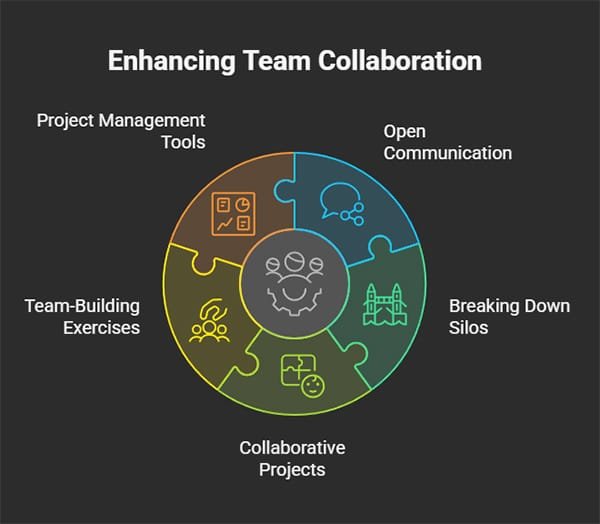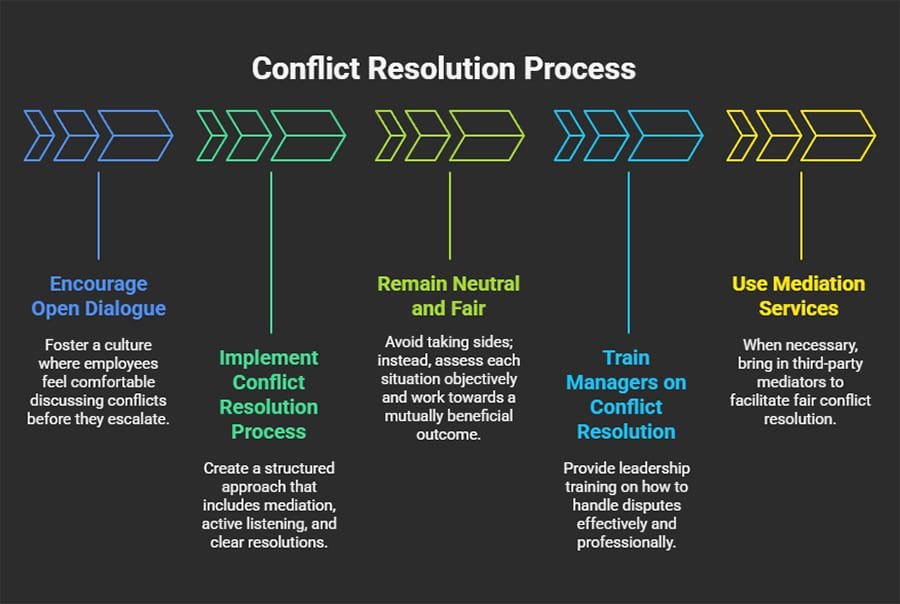
Continuing from Part 1, this article explores the next five essential leadership tips to help property managers enhance team performance. Strong leadership fosters collaboration, ensures adaptability to industry changes, and improves overall operational efficiency. Effective leaders create an environment where employees feel valued, empowered, and motivated to perform at their best.
By implementing these additional leadership strategies, property managers can build a cohesive, productive, and high-performing team that contributes to business success and resident satisfaction. Understanding the nuances of these strategies allows managers to cultivate long-term success in an constantly industry.

Actionable Steps:
Actionable Steps:

The property management industry is evolving rapidly with new technologies, regulatory updates, and changing tenant expectations. Effective leaders stay ahead of these changes and ensure their teams are prepared for transitions. Managers who prioritize adaptability foster resilience and competitiveness within their teams.
Actionable Steps:
Actionable Steps:

Actionable Steps:

The way a team is led can make all the difference. A good leader helps people feel valued, supported, and motivated to do their best. When managers set the tone through their actions and communication, it creates a work environment where team members feel more confident, committed, and ready to handle challenges together.
It starts with being consistent, respectful, and open to feedback. Listening without interrupting, following through on your word, and being willing to admit mistakes all help build stronger relationships with your team. People are more likely to speak up and share ideas when they know they’re heard and respected.
In a busy property management setting, understanding emotions—your own and others’—can prevent miscommunication, reduce tension, and help resolve problems faster. Emotional awareness helps you lead with patience, support team morale, and respond thoughtfully instead of reacting hastily.
Supporting growth means taking the time to understand each person’s strengths, interests, and goals—and giving them opportunities to build on those. Whether it’s through mentorship, training, or new responsibilities, helping team members develop their skills benefits the whole operation.
When feedback is specific, timely, and focused on behavior (not personality), it helps people know what they’re doing well and what they can improve. It clears up confusion, builds confidence, and shows your team that you’re paying attention to their efforts.
Sometimes, it helps to get a fresh perspective. You might ask a trusted team member for honest feedback, talk with another manager for ideas, or review your processes to spot small issues that could be holding the team back. Leadership is a work in progress—it’s okay to keep learning as you go.
Delegation is crucial because property managers cannot effectively handle every task themselves. Identifying tasks that don’t require direct personal attention and assigning them to team members or outsourcing services frees up the property manager’s time to focus on higher-level priorities and strategic responsibilities. Failing to delegate can lead to burnout and reduced overall productivity.
Mastering time management is about working smarter, not necessarily harder. This involves a combination of avoiding common pitfalls like reacting instead of planning, implementing effective prioritization techniques, strategically using tools and software to automate and organize tasks, and having a plan in place for handling emergencies. By adopting these strategies, property managers can regain control of their schedules and operate more efficiently.
By fostering collaboration, providing constructive feedback, adapting to industry changes, handling conflicts professionally, and measuring performance effectively, property managers can create a thriving, high-performing team. Implementing these strategies enhances operational efficiency, strengthens team morale, and improves overall resident satisfaction.
When property managers focus on continuous leadership improvement, they not only benefit their teams but also contribute to the long-term success of their property management business.
Time Management Hacks for Property Managers: 15 Tasks to Automate, Delegate, or Eliminate
Read MoreDealing with difficult tenants is never easy, but with preparation, empathy, and clear policies, you can turn tense situations into...
Read MoreLearn 5 proven rent-raising tips, from communication to timing, without risking tenant turnover. Keep occupancy high and relationships positive.
Read More